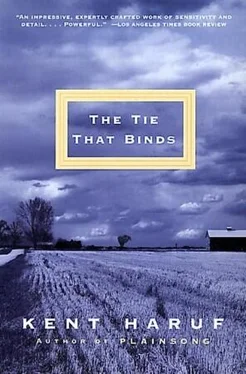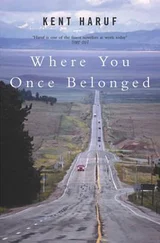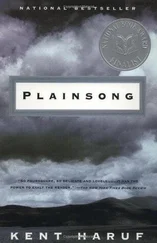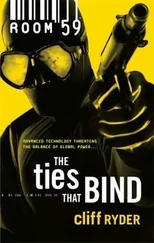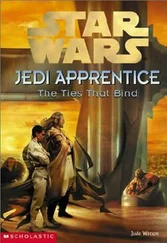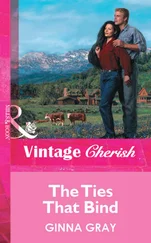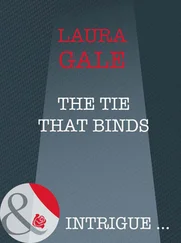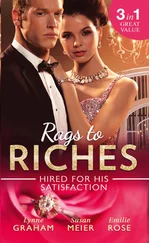Now I’m not big on Ferris wheels. I suppose I feel a little funny riding up and around in a continuous circle with my gut squeezed tight against the locked bar so I won’t fall out, while below me on the ground a crowd of kids are waiting in line for me to get off and give them a chance. The kids can’t see why I’m doing it and I can’t either. But it wasn’t too bad that evening. Mavis and I were holding hands over the little boy in her stomach, and we rode up together in the rocking seat in the near dark. The colored lights were on all over the carnival, outlining the booths and the rides; over the loudspeakers they were playing some scratchy rock-and-roll music. From the top we could see far out over the fairgrounds, the grandstand and buildings and across the arena to the bucking chutes where the bucking horses were grazing in the paddocks, and to the south the town, the streetlights on at the corners and the mass of dark trees and rooftops. Edith and Lyman were in a seat in front of us. That’s what I mean when I say I remember the Ferris wheel best. It’s the picture I hold in mind when I think of that period in their lives.
If Lyman had every really been mad about the beer, he was over it now; he had his arm around his sister. They weren’t talking much but just enjoying the late evening. As we came down on the back side of the wheel we could see them below us, rocking a little in the flicker of the colored lights, the music playing, his hand tapping time on her bare arm and her head relaxed a little toward his shoulder. If you didn’t know them, you might have believed they were an old couple who still had reason to ride a Ferris wheel together. I hold that picture in mind. We went home afterwards.
ON THE HIGHWAY south of Holt is a short wooden bridge called the Five Mile Bridge. No creek or river runs under it, just a weed-choked wash that fills for a day or two in the late spring, when we get most of our annual rainfall. The bridge is not much to speak of, but in this country where there’s not much call for bridges of any kind it serves as a landmark. People use it when giving directions to outsiders. Also, it’s been the site of two accidents.
One of them involved Buster and Barry Wellright, two brothers who live ten miles farther south of me in the sandhills. There is a story that goes with it. The Well-rights are middle-aged boys and poor, almost as poor as Pace Givens but with less reason for it, except that they have a habit of drinking too much; they stay too long at the tavern. Consequently they don’t always get themselves organized very early the next morning when they get up. The proof of their nightly habits is their big beer bellies and Buster is missing an ear where a corn picker chewed it off. But that’s another story. There are a lot of stories about Buster and Barry. They provide a good deal of entertainment for the entire county.
Anyway, this particular story goes that they were driving south on the highway one Saturday night after Tom Bowland finally quit trying to coax them out of the tavern and just turned the lights off. So it was about three o’clock. They were driving in their pickup and they had just about reached that Five Mile Bridge when Buster happened to look up from his drunken slouch and noticed that they were off the road. The pickup was bouncing along in the barrow ditch with the summer weeds flying up over the hood like cornstalks. He punched his brother. “Barry,” he said. “Barry, get this son of a bitch back where it belongs.”
Barry kind of lifted his head and looked around him. “Nah,” he said. “You do it, Buster. You’re driving.”
It’s never been fully established who was driving — the Wellrights dispute it themselves — but whichever brother it was didn’t make it. The pickup smashed into the end of the bridge. When they were satisfied that they couldn’t back up or for that matter move at all, since the bumper was wrapped hard around a steel post, one of them turned the engine off so they wouldn’t be blown to bits and they both settled down in the cab for a nap. The next morning people going to church found them sound asleep with horseflies buzzing in their open odoriferous mouths. The people thought they were dead, until they stuck their heads in the window and smelled. Buster and Barry weren’t dead; they just didn’t want to bother anybody for help at that time of night and they were too contented for the moment to walk home. It would have been a good twelve miles, and walking that far they might have had to go to bed sober. They didn’t want that.
None of us wanted what happened to us, either. Edith, in particular, hated it. I think she blamed herself. But it wasn’t her fault: Lyman was driving. Still, there’s no point in fixing blame. It happened and it’s over. Come August it’ll be ten years.
Only I think I mentioned earlier how I thought the big back seat of Lyman’s Pontiac would be good for my wife. It shows how much I know, because it was and it wasn’t. My wife didn’t die. Coming home from the fairgrounds, after the nickel toss and the beer and the Ferris wheel, she was asleep in the back seat with me. Up front Edith was dozing in the passenger seat beside Lyman. I wasn’t paying a lot of attention; I was half asleep myself, watching the month-old wheat stubble and the dark shining corn flow by beyond the fence line.
I came to when we bounced off the near side of the iron bridge rail. We were shooting across to the other side then where we caught the far end of the bridge; the car spun, crossed back to the right side of the highway, cleared the bridge, and then dove nose first off the road-edge; it slammed into the bank of the barrow ditch and rocked back with a leaded jolt onto its top. We were thrown upside down scrambling on top of one another with sharp cutting edges of glass everywhere. There was the bad smell of gasoline, the sound of something dripping. Lyman was out cold; Edith was moaning in shock about her arm. Mavis and I were shoved together, her face twisted away from me against the dome light and her knees drawn up against her stomach. She was crying.
“The baby.”
“Are you all right?”
“But the baby.”
“We’ve got to get out of here. It’ll catch fire.”
I started kicking with my boots at the door, but it was jammed hard against the ditch bank, and the other door was sprung so it wouldn’t open. The back window was smashed free of glass except for jagged pieces around the edges, so I kicked those off and crawled out into the ditch. I began to pull Mavis out after me.
“Please don’t,” she said. “Please don’t move me.”
“I have to. I can’t leave you in there.”
I pulled her by the arms as carefully as I could, trying to cradle her head and to support her back, and she was still crying in a soft whisper. I got her out and laid her down in the weeds away from the car. She was lying there in the dark with her knees up. Over her legs her dress was wet and sticky, but I didn’t tell her that. I went back and pulled Edith; she cried out when I tugged one arm so I shifted to the other, and then Lyman after her, out the back window into the ditch. Then a car was there; against the headlights I could see figures sliding down toward us from the lip of the road.
It was Ed Taylor and his wife. They helped me carry Mavis and Lyman to their car; Edith, though she was still in shock, was able to be led up the steep bank. Ed drove us all to town to the hospital.
But it wasn’t enough. The baby came that night anyway after a bad time with the forceps and quite severe hemorrhaging. He was born dead. It was a boy too, like we agreed it would be. He had a shock of black hair and on his face a blank pinched look like an old man; there were bruises on the sides of his head from the forceps, and one of his ears was torn. The nurses showed him to me so I could attest to his death. Later, when Mavis came out of the anesthetic she wanted to see him. I told her no, she didn’t; I felt bad enough myself and I didn’t think seeing a dead baby would make her feel any better either. But she said, “I want to see him.”
Читать дальше
